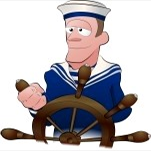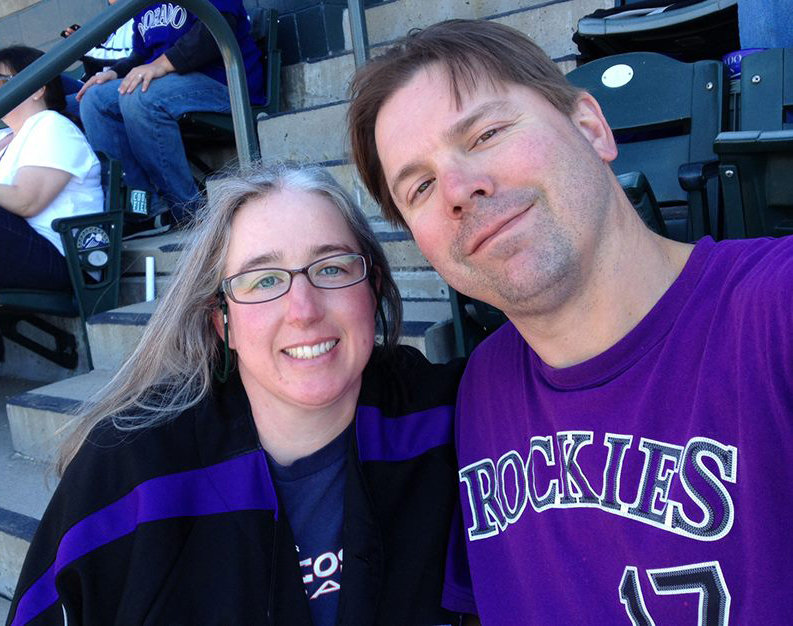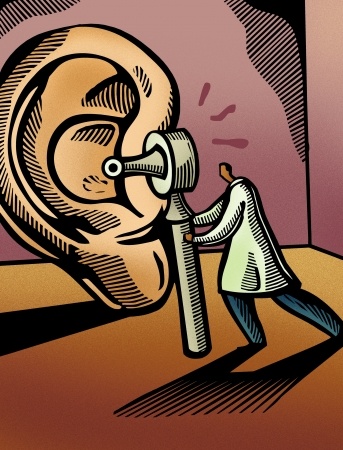
CruiseShipOfficer
New York, NY
Male, 33
I have worked as a deck officer on large cruise ships for almost a decade. When standing watch on the bridge for eight hours a day, I was directly responsible for the safety and navigation of the vessel. In addition, in my roles as Safety Officer and Chief Officer, I have had duties outside of the bridge regarding emergency response and procedures.
Absolutely, yes. (No doubt that is part of why I was asked to answer questions on here!) As soon as the accident occurred, I had many emails in from both friends and journalists asking for my reaction. It definitely has raised the awareness of my job-- but not in a way I had hoped. As for how this could possibly have happened-- well, it is of course a very relevant question. The first is the typical disclaimer-- we have to wait and see what really happened before we can make final judgements about what went wrong. Until those official reports come out with transcripts from the bridge and screen shots of the electronic chart and radar displays at the time, we won't know entirely what happened. That being said, if everything that has been reported so far in the media is fairly accurate, it seems to be a simple case of human error-- someone just not paying enough attention. This is an obvious statement, but it should never have happened. The area was well charted, the ship had excellent technology, and the weather does not seem to have been a factor. It definitely appears now that certain procedures and good industry standard practice were not being followed on the bridge that night.
It certainly happens, no doubt about it, although every company has policies against it (and varying levels of enforcement.) But far more common is internal relations with the crew. People often ask if that is allowed-- and it is, absolutely.
Great question. At the end of the day, you are given tremendous authority when you are captain, but you also burdened with tremendous responsibility. He was entrusted with the lives of many thousands of people, and if, once the reports are out, he really was simply grossly negligent, then yes, he should face criminal penalties. Unfortunately accidents do occur, but there is not always gross negligence. For instance, if it turns out there was a large mechanical failure that was unpredictable and was the direct cause of the accident, and the Captain then acted prudently and was able to keep the ship afloat for as long as possible and promptly ordered an evacuation, etc, I don't believe he should be penalized. As for appropriate jail term-- I don't think I can come up with a solid number. The ship was registered in Italy and so Italian law- with its applicable penalties and jail terms- should apply.
Company policy dictates this usually. On most cruiseships it is OK to have a drink during off hours, but never exceeding certain limits, and generally not within 4 hours of duty. Again, this varies, however- some companies operate dry ships.
iPhone & iPad Technician
 Do you think tablets are just a fad?
Do you think tablets are just a fad?
Audiologist
 Are earbuds dangerous for my ears?
Are earbuds dangerous for my ears?
Subway Store Manager
 The 6" sub is too small and the 12" is too big. Why no 9-inch sub?
The 6" sub is too small and the 12" is too big. Why no 9-inch sub?
Nothing new that I know of. However, stabilizers are remarkably effective at reducing the rolling of a ship-- most of the time, ensuring the ship does not roll more than say 2 or 3 degrees. (Keep in mind cruiseships generally sail in areas where the seas are calm anyway, and so the rolling is likely to be much less than that to start with.) In fact, stabilizers are so effective that it can somewhat change your strategy for minimizing discomfort-- in the past, you would put a ship's bow into the seas to reduce rolling and just have the ship pitch. Now, you can put the seas more on the side and have the ship more stable, thanks to the stabilizers. Of course, stabilizers do not work for pitching- ie the ship heading directly into seas and the bow going up and down- and no technology is in the works that I know of to address that issue. Some yachts have new systems that do allow them to minimize or reduce rolling even at anchor now, but I don't think you'll see that on cruiseships anytime soon-- in large part because there is not really a need for it.
I think it is a variety of reasons. A very large number of people are just put off by the worry of being sea sick. Lots of others think there is nothing to do onboard (except eat). Others hate the idea of being 'trapped' or 'confined' with thousands of other people and having to deal with 'forced revelry' that you can't 'escape from.' Carnival initially played up its "FunShips" theme so much to appeal to a broader demographic; that probably tainted the industry in the eyes of many. (Now, however, Carnival is trying to tone down its fun ship/party image, and be more family friendly.) Of course, the reality is that cruising has so many different niches there is a cruise for everyone- from ultra-luxurious small ships that rival some of the best accommodations on land to adventure trips to Antarctica to barges in France. That seems like a PR answer, but I genuinely think it is true.
It depends on the company, but generally yes. That is one of the nicer aspects of working on a cruise ship (as opposed to a cargo ship.) If you bring a spouse along, there is plenty for her (or him) to do when you are working. Some lines may allow you to bring someone along for free in your cabin-- others may charge a nominal fee just to cover a few expenses. A generous family travel policy is one way a company can really generate goodwill from its employees-- those companies that try and restrict it often find their employees upset.
-OR-
 Login with Facebook
Login with Facebook (max 20 characters - letters, numbers, and underscores only. Note that your username is private, and you have the option to choose an alias when asking questions or hosting a Q&A.)
(A valid e-mail address is required. Your e-mail will not be shared with anyone.)
(min 5 characters)
By checking this box, you acknowledge that you have read and agree to Jobstr.com’s Terms and Privacy Policy.
-OR-
 Register with Facebook
Register with Facebook(Don't worry: you'll be able to choose an alias when asking questions or hosting a Q&A.)